Concawe Reports

Reports
A review of toxicity testing conducted on European refinery effluents in 2010 and 2013
Report no. 2/18: This report provides an initial assessment of the extent to which toxicity testing is carried on European refinery effluents, and the types of test being used. The analysis is based o...

Reports
Air emissions from the refining sector. Analysis of E-PRTR data 2007-2014
Report no. 4/18: This report is an updated version of the Concawe Report No 2/15 providing a review of the air pollutant emissions data submitted by national authorities for oil refineries in the Euro...
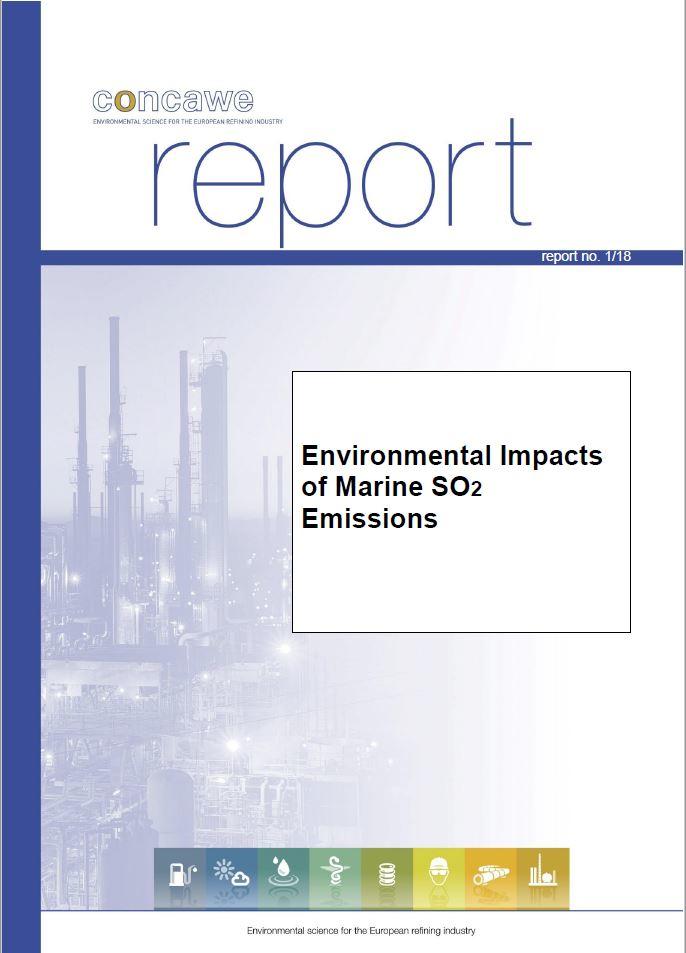
Reports
Environmental Impacts of Marine SO2 Emissions
Report no. 1/18: This report details work that was carried out to study the impact of emissions from international shipping on air quality, with a focus on sulphur dioxide (SO2) emissions. Emission in...
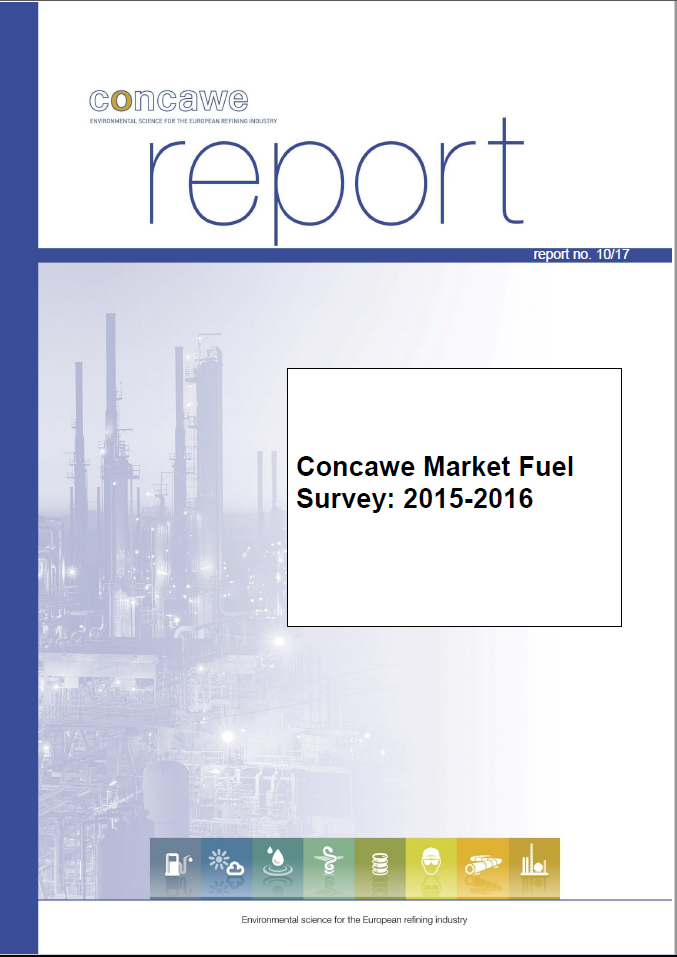
Reports
Concawe Market Fuels Survey: 2015 – 2016
Report no. 10/17: Concawe conducted a market fuel survey on petrol and diesel qualities, taking samples from seventeen European countries during mid-2015 – early 2016. A total of 244 samples (100 pe...
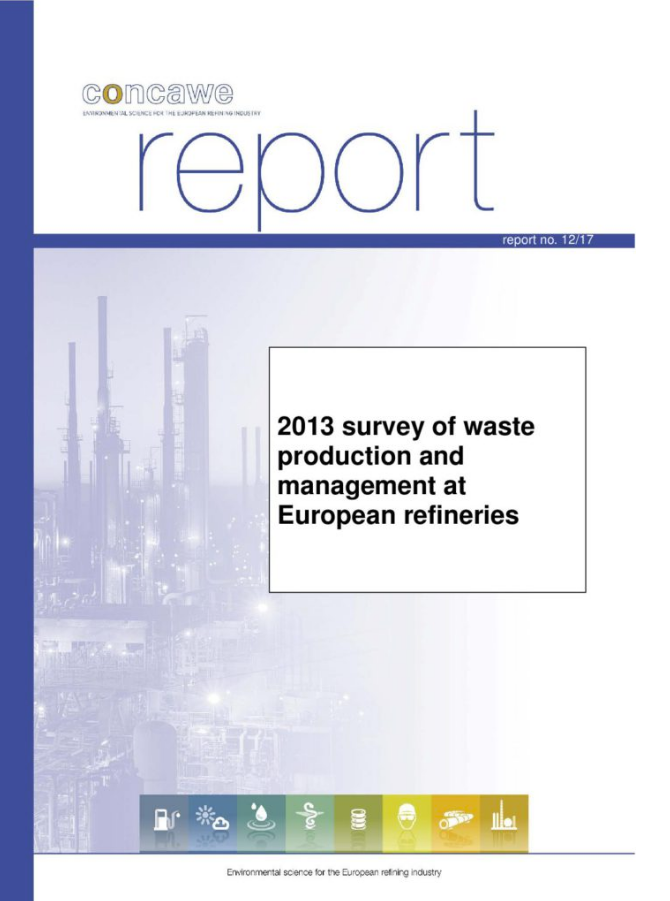
Reports
2013 survey of waste production and management at European refiners
Report no. 12/17: This report provides a statistical analysis of waste production by Concawe member company refineries in 2013, based on survey data returned from 74 member company refineries (71% res...
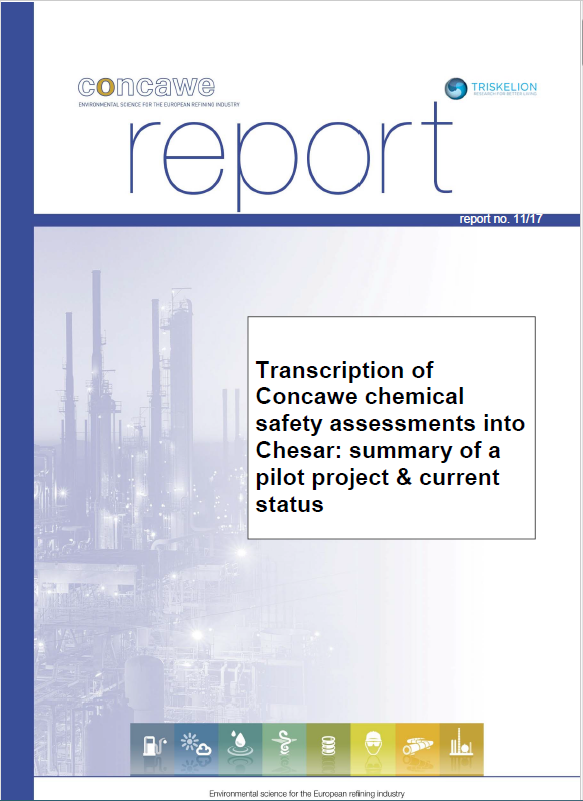
Reports
Transcription of Concawe chemical safety assessments into Chesar: summary of a pilot project & current status
Report no. 11/17: A pilot study was conducted to assess the suitability of transcribing the Concawe CSAs into Chesar version 2.2. The aim was to identify areas that could affect the effective use of t...

Reports
Using forest carbon credits to offset emissions in the downstream business
Report no. 9/17: This report examines if and how forest carbon credits can potentially be used to offset emissions from the EU refining and road transport sectors. Forest carbon projects involve eithe...

Reports
Concawe workshop report “PAH integrated exposure modelling”
Report no. 8/17: This report summarises the discussions held during the “Polycyclic Aromatic Hydrocarbons (PAHs) integrated exposure modelling” 2-day workshop organized by the Flemish Institute fo...

Reports
European downstream oil industry safety performance. Statistical summary of reported incidents – 2016
Report no. 6/17: The twenty-third annual report on European downstream oil industry safety performance presents work-related personal injuries for the industry’s own employees and contractors and pr...

Reports
Compilation of Concawe market fuel surveys: 2008-2012
Report no. 5/17: This is a compilation of Concawe market fuel surveys between 2008-2012....
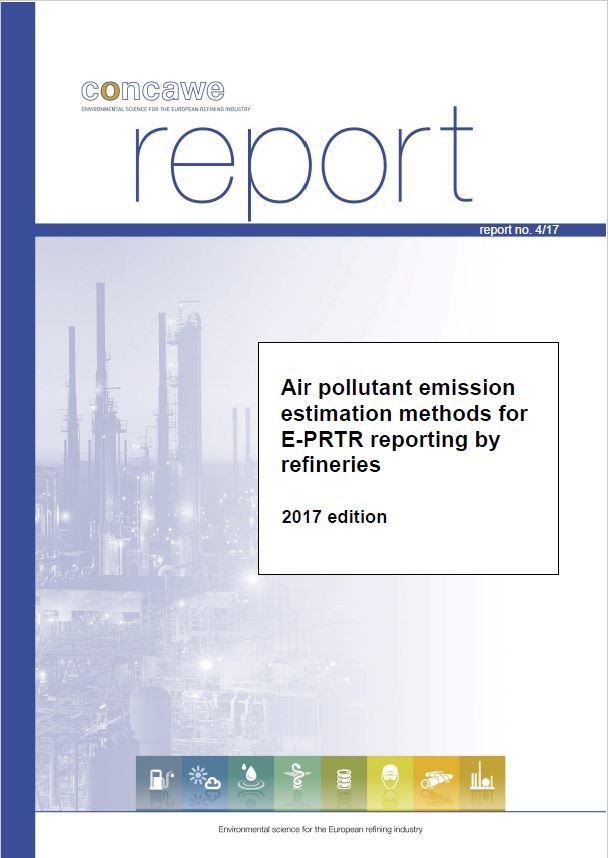
Reports
Air pollutant emission estimation methods for E-PRTR reporting by refineries
Report no. 4/17: This report is an update of the Concawe publication “Air Pollutant Emission Estimation Methods for EPER and PRTR Reporting by Refineries”....

Reports
Experimental evaluation of the flux chamber technique to determine VOC emissions from a water surface
Report no. 3/17: Tests have been undertaken under controlled conditions in a wind tunnel to compare the emission fluxes from an open tank containing an aqueous toluene solution with those determined u...
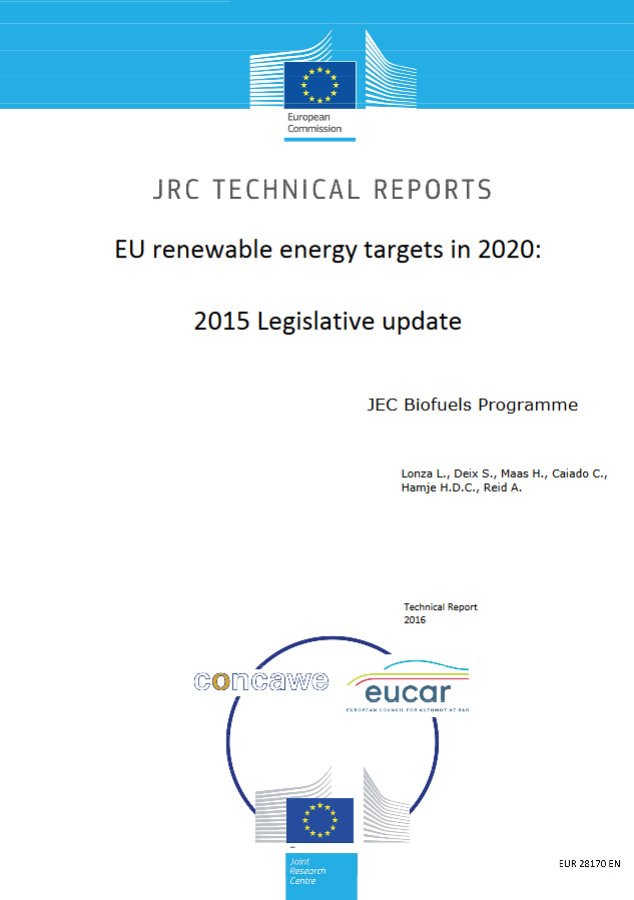
Reports
EU renewable energy targets in 2020: 2015 legislative update
This report is the result of the JEC Biofuels Programme, a joint study carried out by JRC (the Joint Research Centre of the European Commission), EUCAR (the European Council for Automotive R&D) an...

Reports
An evaluation of an optical gas imaging system for the quantification of fugitive hydrocarbon emissions
Report no. 2/17: This report provides the results of a preliminary study undertaken to test the performance of a quantitative optical gas imaging (QOGI) system. This has been developed to measure the...
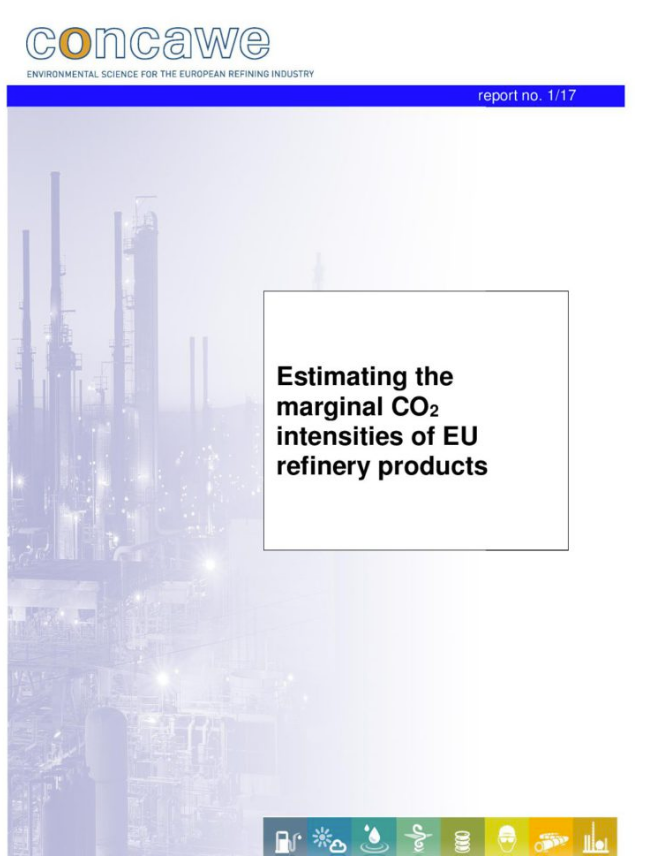
Reports
Estimating the marginal CO2 intensities of EU refinery products
Report no. 1/17: Estimating the CO2 emissions associated with production of individual oil products is challenging inasmuch as they are produced simultaneously through a combination of interrelated pr...

Reports
Impact of FAME Content on the Regeneration Frequency of Diesel Particulate Filters (DPFs)
Report no. 14/16: Modern diesel passenger cars utilize Diesel Particulate Filters (DPFs) to reduce particulate matter exhaust emissions. In addition oxygenated fuels and fuel blending components such...
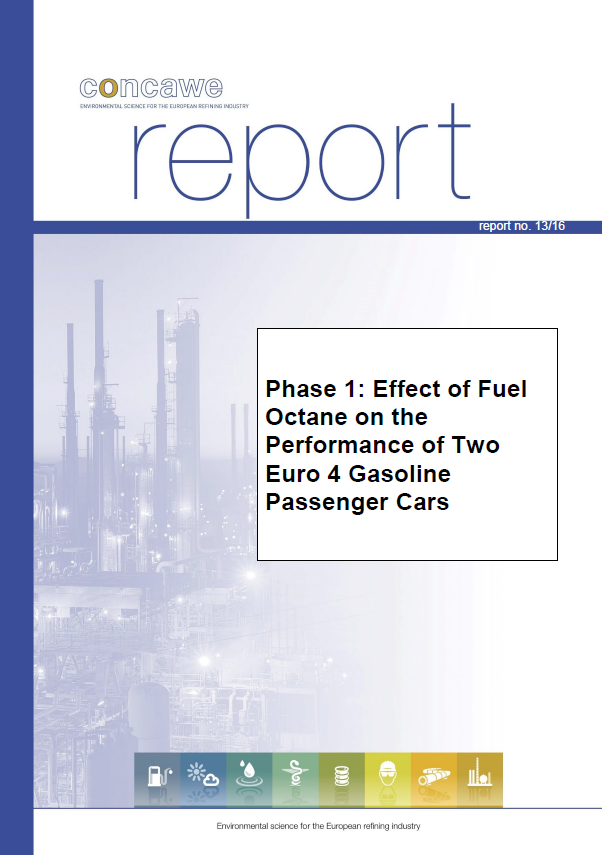
Reports
Phase 1: Effect of Fuel Octane on the Performance of Two Euro 4 Gasoline Passenger Cars
Report no. 13/16: This report details work that was carried out to study the response of modern gasoline passenger cars on octane. The objective of this phase 1 of the study was to investigate the eff...
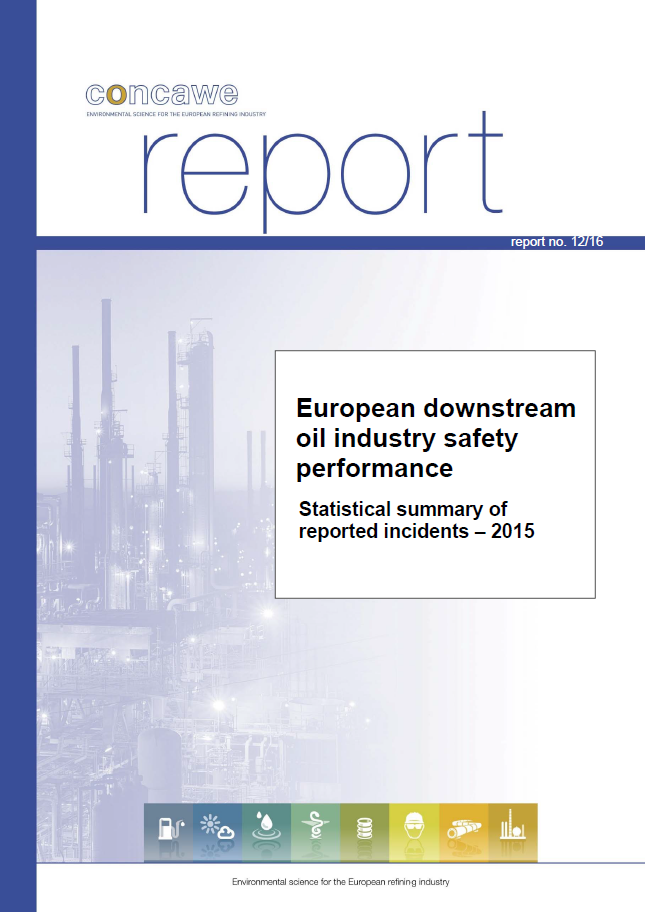
Reports
European downstream oil industry safety performance – Statistical summary of reported incidents 2015
Report no. 12/16: In this twenty-second annual report on European downstream oil industry safety performance, 2015 statistics are presented on work-related personal injuries for the industry’s own e...
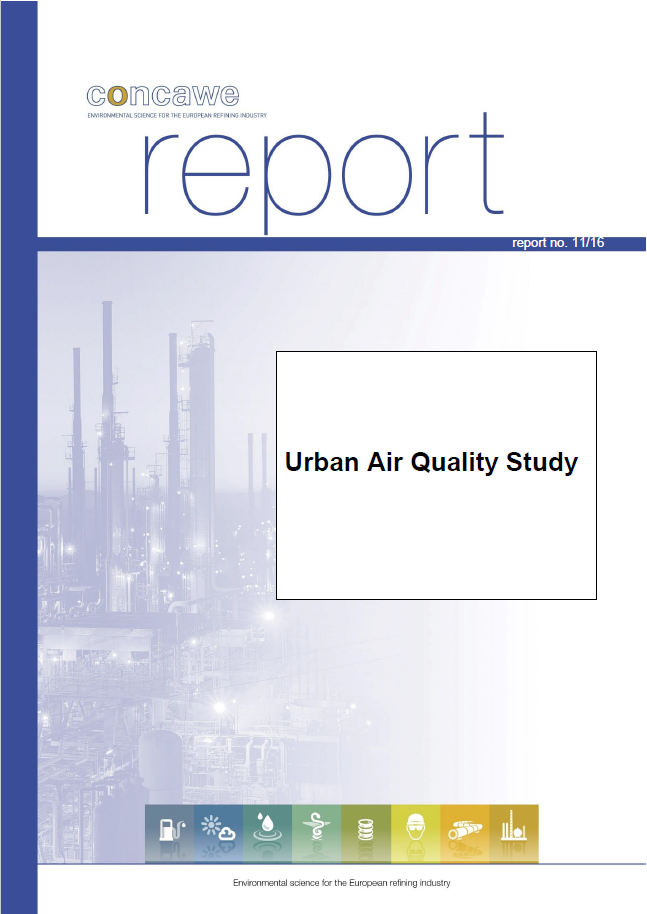
Reports
Urban Air Quality Study
Report no. 11/16: An exploration into the effect of emission reduction scenarios on compliance with the ambient air quality limit values for the EU-27 countries in urban environments....
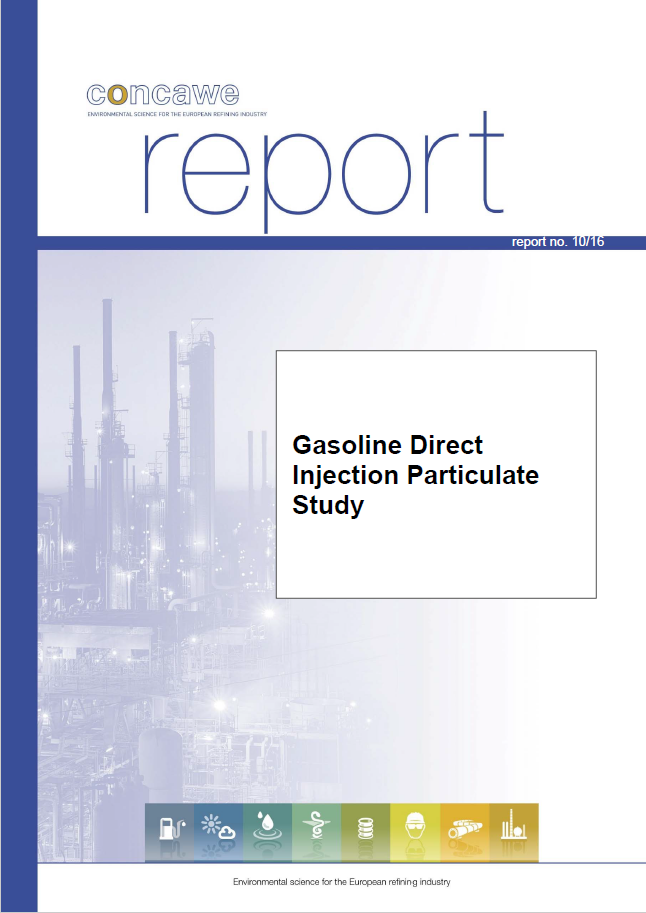
Reports
Gasoline Direct Injection Particulate Study
Report no. 10/16: Two modern Gasoline Direct Injection (GDI) light duty vehicles have been tested to investigate the effect of oxygenates (mainly ethanol) on particulates - both mass and number, fuel...
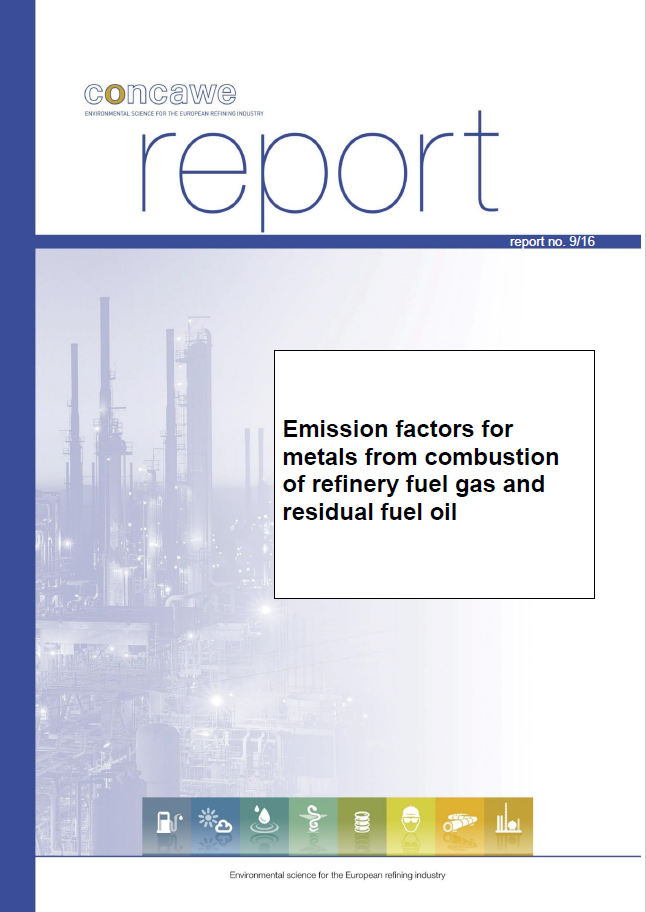
Reports
Emission factors for metals from combustion of refinery fuel gas and residual fuel oil
Report no. 9/16: This report provides emission factors for nine metals (arsenic, cadmium, chromium, copper, lead, mercury, nickel, selenium and zinc) emitted to atmosphere during the combustion of ref...
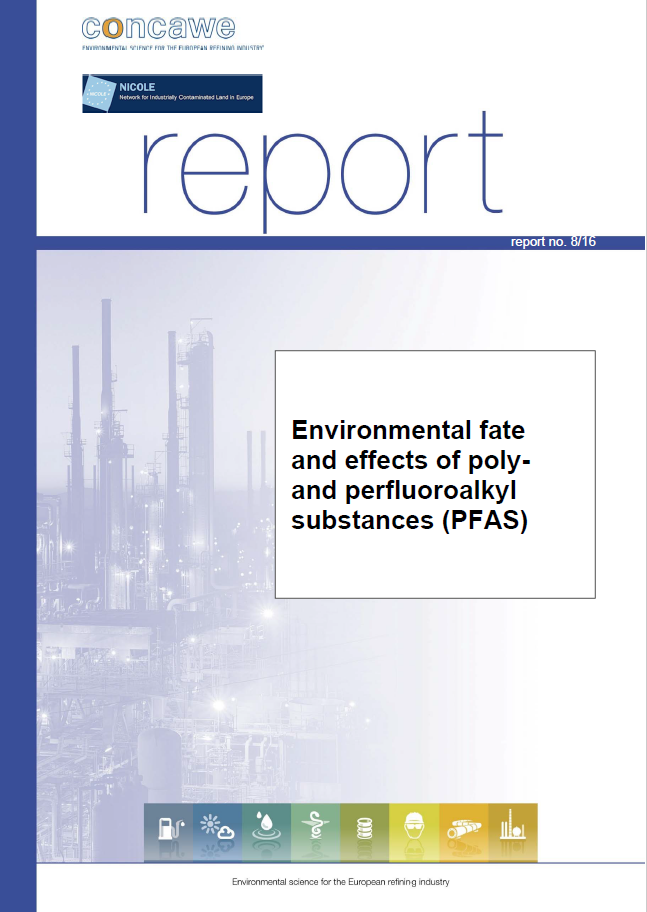
Reports
Environmental fate and effects of poly- and perfluoroalkyl substances (PFAS)
Report no. 8/16: Aqueous Film Forming Foam (AFFF) and Fluoroprotein (FP)/ Film Forming Fluoroprotein Foam (FFFP) foam have been used since the 1960s and 1970s, respectively, for the suppression of cla...

Reports
Assessing the aquatic toxicity of petroleum products: comparison of PETROTOX calculations and SPME-GC screening
Report No. 3/16: Using detailed two-dimensional chromatography (GCxGC) analysis of a set of petroleum product samples of Gas Oils, Residual Aromatic Extracts (RAE) and Bitumen categories, PETROTOX pre...
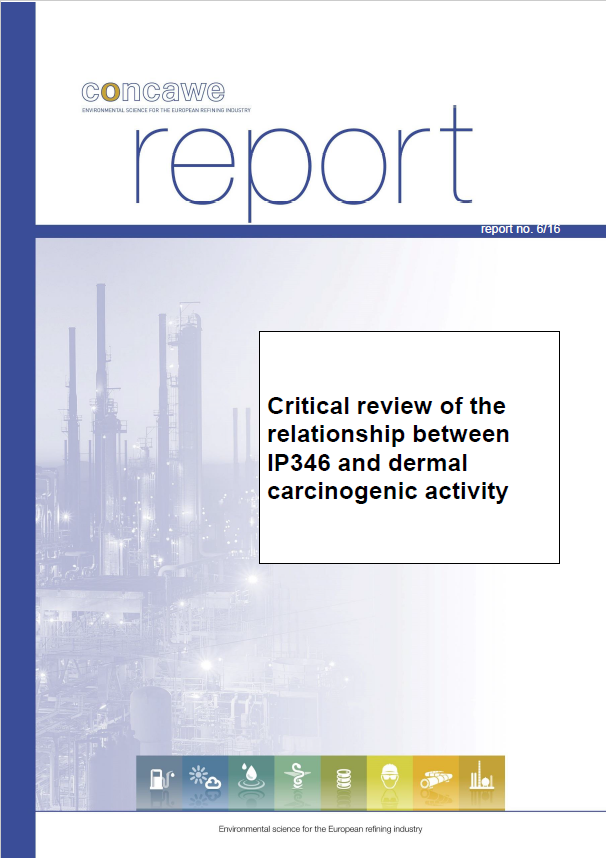
Reports
Critical review of the relationship between IP346 and dermal carcinogenic activity
Report no. 6/16: The IP 346 method was adopted as a screening assay to predict the carcinogenicity of specific petroleum streams. Its application is based on a strong correlation with results from ove...